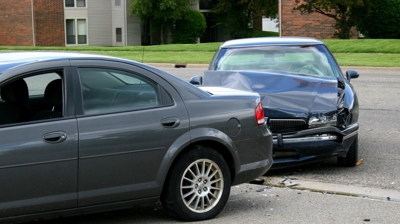
Florida Negligent Security Lawyers
Holding Property Owners Accountable for Negligence Since 2008
If you suffered harm because of a criminal act on someone else’s property, you don’t have to go through it alone. Since 2008, Kemp Law has pursued justice and compensation for victims injured by inadequate security measures. With over a decade of experience and a longstanding track record of winning results, you can trust us to advocate for your best interests both inside and outside the courtroom.
Don’t pay the price for another person’s negligence—choose a nationally acclaimed law firm with a reputation for excellence. Our firm understands the immense physical, emotional, and financial toll that comes with a wrongful injury, especially after traumatic and violent incidents. Our goal is to recover the full settlement you need, so you can focus on your recovery during this stressful time.
Whether you were harmed in a poorly lit parking lot or attacked by a resident of your apartment complex, our negligent security lawyers can work to hold responsible parties accountable under Florida’s premises liability laws. When you work with our highly skilled attorneys, you can expect direct attorney involvement and exceptional advocacy tailored to your unique legal needs.
Florida's diverse communities—ranging from bustling tourist hotspots like Orlando and Miami to quiet apartment complexes in suburban areas—deal with unique security challenges. Our knowledge of local property laws around the state, including those affecting popular venues, hotels, and public spaces, ensures that your case receives careful attention to the details that matter most in your particular situation.
If you were harmed by negligent security, take the first step toward justice. Call (727) 788-6792 to schedule a free consultation. Pay nothing until we win.
What Constitutes Negligent Security?
While offenders should be held accountable for criminal acts, property owners often create conditions that allow crimes to occur in the first place. A negligent security lawsuit can hold all liable parties responsible, not just one individual.
In Florida, property owners must provide proper lighting, functional locks, security cameras, on-site security personnel, and other appropriate security measures. Negligent security happens when an owner fails to take reasonable steps to ensure the safety of visitors or customers, resulting in harm caused by criminal acts.
When someone gets hurt due to preventable crimes like robbery, assault, or other violent acts, the property owner may be liable for negligence.
Many negligent security cases in Florida arise from locations known for high foot traffic, such as shopping centers, hotels, and entertainment districts. Property owners in areas with high crime rates or a history of past incidents have a heightened responsibility to implement stronger security protocols. If a property had previous incidents and failed to make improvements, this negligence could play a pivotal role in your case. Understanding the different types of properties—commercial, residential, and public—helps determine which specific standards apply and how liability gets established under state law. Our attorneys routinely review incident reports, security camera footage, and local crime statistics to build a comprehensive case that reflects the realities of Florida communities.
What Are Common Examples of Negligent Security?
Knowing what negligent security looks like in real situations is vital for recovering compensation in a future claim. Common examples of negligent security include:
- Being carjacked in a parking lot
- Being attacked as a patron at a retail store
- Being harmed as a tenant due to the landlord’s negligence
- Being attacked while visiting someone’s home-based business
- Being attacked by another student at a school or university
- Suffering harm while shopping during a robbery or theft
Negligent security can look different depending on the location and type of property. At many Florida apartment complexes, for example, landlords may fail to maintain secure entry gates, functioning locks, or adequate lighting in common areas, which increases the risk of violent crimes. Retail shopping centers and nightclubs in cities like Tampa and Miami often experience higher crime rates, making the presence—or absence—of trained security personnel and effective surveillance crucial. Owners of parking garages near downtown events or stadiums must address risks posed by poorly lit stairwells or ineffective camera systems, especially when large crowds gather for concerts or sports games. Schools and universities also face specific challenges regarding access control and patron monitoring to protect students, staff, and visitors. Each scenario highlights the property owner’s role in either meeting—or failing—their duty of care under Florida law.
Proving Liability in a Negligent Security Claim
Suffering an injury on someone else’s property alone does not entitle you to damages in a negligent security lawsuit. Because the injured person (plaintiff) bears the burden of proof in these cases, working with a negligent security attorney in Florida is vital to establish liability and pursue compensation.
We can help you establish these legal elements to prove liability:
- Duty. First, you must show that the negligent property owner (defendant) owed you a duty of care, such as maintaining reasonably safe premises for guests and patrons.
- Breach. Next, you must demonstrate that the defendant breached this duty by acting negligently, such as not implementing adequate security measures.
- Causation. Then, you must prove that the lack of appropriate security directly caused your injuries.
- Damages. Finally, you must show that you suffered compensatory harm (damages) as a result of the breach.
At Kemp Law, our attorneys have extensive knowledge of premises liability laws to investigate the incident, identify negligent parties, and gather evidence needed to meet the standard of proof in your case.
How Long Do I Have to File a Negligent Security Claim?
In Florida, the statute of limitations for negligent security cases is typically two years from the date of the injury. This changed from the previous four-year statute when H.B. 837 was enacted in 2023.
Missing the statutory deadline can jeopardize your ability to recover damages altogether. Certain circumstances—such as cases that involve municipalities or government entities—may involve stricter notice requirements or deadlines, so you should act promptly. The two-year period generally applies to most private property claims, but you may have even less time to give formal notice if a city, county, or public school is involved. Our attorneys help clients understand how these deadlines apply in their specific Florida county, keeping cases on track from the very beginning.
Who Is Liable for Negligent Security?
Determining liability is a complex yet important aspect of any injury lawsuit. Common liable parties in negligent security claims include property owners, property managers or landlords, and companies hired to provide security. Our lawyers have a strong understanding of these legal nuances to identify responsible parties and pursue the settlement you need to focus on your health and recovery.
Liability may fall on more than one party. For example, a property owner could share fault with a contracted security firm if that company failed to provide qualified guards or keep up with routine patrols. In cases involving large apartment complexes or commercial buildings, maintenance companies or property management companies may be responsible for security lapses like broken locks, malfunctioning gates, or unmonitored surveillance systems. Some claims may also include business tenants—for instance, a nightclub operator—if inadequate crowd management led to violence. Every situation is unique, so our approach in Florida focuses on identifying every party whose negligence contributed to the incident.
Do I Need a Lawyer for a Negligent Security Lawsuit?
From medical bills to lost wages, recovering from a wrongful injury can be costly. However, failing to work with a trusted attorney may risk a lower recovery. In many cases, having legal representation can make the difference between receiving a full settlement and walking away with less than you deserve.
Some important reasons to work with an experienced lawyer include:
- Case investigation. Suffering an injury alone doesn’t guarantee compensation. Our attorneys can leverage a network of professional contacts and resources to obtain critical evidence and meet your burden of proof.
- Negotiating a fair settlement. Insurers often avoid fair payouts using evasive strategies and lowball offers. Our firm recognizes these tactics and negotiates on your behalf to hold negligent parties accountable.
- Trial preparation. While many claims settle out of court, we prepare every case for trial and work tirelessly to protect our clients’ rights both in and out of the courtroom.
Working with a negligent security lawyer in Florida gives you access to someone who understands statewide laws, local court procedures, and the nuances of regional regulations. Florida’s high volume of tourism, apartment housing, and commercial developments creates a wide variety of claims—each needing tailored legal strategies. An attorney can help streamline paperwork and coordinate communications with property managers, insurers, and investigators, which saves you time and effort. Legal professionals also stay current with changes to state law—such as the recent statute of limitations update—so you never miss a critical deadline or opportunity for financial recovery.
What Damages Are Recoverable in a Negligent Security Lawsuit?
Depending on the details of your case, you may be eligible to pursue various types of compensation in a negligent security lawsuit.
Common damages include direct financial losses such as medical expenses, treatment costs, lost wages, lost earning capacity, and property damage. You might also recover for non-monetary losses including pain and suffering, emotional distress, permanent scarring or disfigurement, and loss of enjoyment of life.
In rare cases involving especially egregious misconduct, the court may also award punitive damages to punish the defendant and discourage similar behavior in the future. Regardless of your legal circumstances, our attorneys can help you seek maximum compensation by assessing every potential avenue for financial recovery.
Florida juries may consider several factors when determining damages, including the extent of your physical injuries, length of medical treatment, effect on long-term quality of life, and whether repeated violations by the property owner increased the risk of harm. Emotional damages are particularly relevant in cases involving severe trauma, such as assaults, robberies, or attacks in places expected to be safe, such as apartment complexes or hotels. Compensation can also reflect unique losses tied to your work life or daily living routine, especially if the injuries resulted in permanent disability or emotional harm. When cases involve well-known Florida properties or public spaces, potential compensation may be influenced by heightened community awareness or local legal precedent.
Don’t pay the price for someone else’s negligence. Our lawyers will work diligently to recover the fair settlement you deserve. Contact us online or by calling (727) 788-6792 to discuss your case.
Steps to Take After a Negligent Security Incident
After any incident involving negligent security, take prompt action to protect your safety and legal rights. Always move to a safe location first and call law enforcement to report the crime. The responding officers will generate an official report that serves as critical evidence in future proceedings. Ask for a copy of the report or details on how to obtain one.
Seek medical attention, even if you believe your injuries are minor. Some conditions take hours or days to surface, and timely documentation supports your claim. Write down your recollection of the event, including the location, the time, and any visible lapses in security—such as broken lights or missing security personnel. Take photos if possible, and capture video evidence if your phone allows.
Gather names and contact information for witnesses. Their statements can be vital in confirming what occurred and demonstrating property conditions at the time. If the incident occurs in a commercial space, notify management or building staff and ask for a written record that you reported the event. These basic steps help secure crucial facts and support the process if you choose to move forward with a claim under Florida law.
Frequently Asked Questions
What should I do if I suspect a property lacks adequate security?
If you believe a property lacks adequate security, alert property management or the landlord with your concerns and document your notice in writing. If you have already suffered harm, report the incident to law enforcement right away and secure a copy of the report for your records. This documentation supports your legal options for holding the property owner accountable.
Can I bring a negligent security claim if the attacker was never caught?
Yes, you may still have a claim against the property owner even if law enforcement never identifies or arrests the attacker. Your case focuses on whether the owner failed to provide reasonable security, not on the outcome of the criminal investigation. The legal process centers on standards for property maintenance and crime prevention rather than criminal prosecution.
How does previous criminal activity at a location affect my negligent security case?
A history of prior crimes at a location can strengthen your claim by showing that the property owner knew or should have known about potential threats. Courts may weigh these facts to determine whether the owner’s failure to upgrade security or respond to warnings meets the standard of negligence under Florida law.






